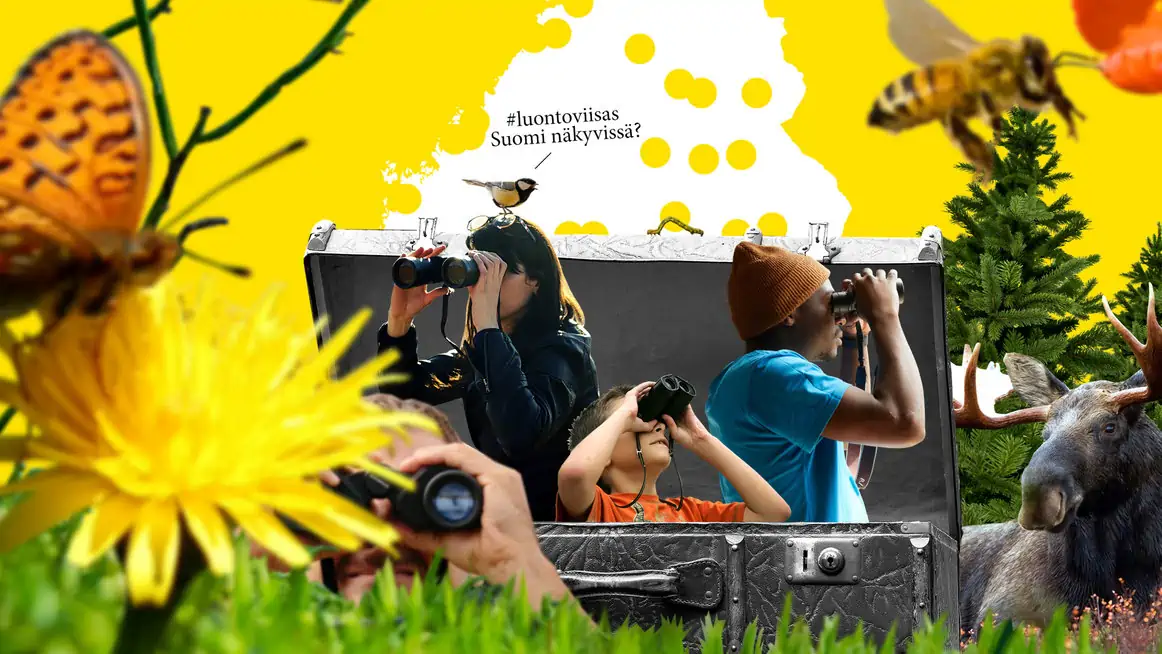Preserving biodiversity is emerging alongside climate crisis mitigation as an existential issue for the future of humanity as a whole. Biodiversity loss is progressing at a worrying pace globally, and also in Finland. We must reverse this trend, as the well-being of all of us, the economy and society are all dependent on nature
In spring 2022, Sitra and DialogiAkatemia invited people in Finland to join the Great Nature Dialogue, a constructive discussion on the significance of nature and halting biodiversity loss. The dialogues were met with enthusiasm. In March 2022, more than 100 dialogues were held at scores of localities. The key findings of the dialogues have now been compiled into the publication Suuri luontodialogi – Meissä jokaisessa elää monta luontosuhdetta (summary in english).
The people and organisations who participated in the discussions identified numerous means for helping to stop the loss of biodiversity, including maintaining a diverse relationship with nature throughout life, making informed everyday choices, carrying out long-term research and advocacy work, popularising research knowledge, and making and experiencing art.
In contrast, the participants identified a number of factors that prevent us from stopping the loss of biodiversity, such as the speed of biodiversity loss, the culture of greed and overconsumption, polarisation related to nature, the consequences of local and global inequality, and the lack of systemic-level understanding, visions and means of influence.
“Summarising the nature dialogues gives us an idea of how extensive the economic and societal changes need to be to stop biodiversity,” says Outi Haanperä, Project Director at Sitra. “Biodiversity should be taken into account in companies, municipalities, legislative projects, education and training, learning, values and ideals and, of course, in everyday consumption decisions.”
Consideration for a wide range of relationships with nature
One of the objectives of the Great Nature Dialogue was to deepen the understanding of the diverse relationships Finnish people have with nature. Many consider nature to be very important, but there is no single type of relationship with nature that is inherently “correct”. The summary of the dialogues shows that we all see nature in our own way. In addition to this, as individuals, we all have several parallel relationships with nature, which may sometimes even conflict with each other.
Our relationships with nature may have spiritual, or even mystical dimensions. Most of the participants recognise that the meaning of nature is often also very pragmatic. For example, depending on the situation, we may consider nature important for relaxation, recreational purposes, hobbies, work or livelihoods.
“It is important that all people, communities and organisations recognise their own motivations for and ways of contributing to strengthening nature,” says Rasmus Sihvonen, a project co-ordinator at Sitra. “Co-operation to strengthen nature is absolutely necessary. To achieve results, we need to understand both our own and other people’s relationships with nature. For this, we need genuinely constructive dialogue about nature.”
Dialogue deepens understanding
Debate around biodiversity may often become quite heated. This is partly a result of nature being very important for people, companies or municipalities, but often for different reasons.
The Great Nature Dialogue, conducted using the Timeout dialogue method developed at Sitra, gave people an opportunity to reflect on and analyse their own connection with nature and to listen to what kinds of perceptions of nature other people had.
“When used methodologically, the strength of dialogue lies in the fact that it is not aimed at finding a solution or a winner. Instead, it seeks to create trust between us and an understanding of what other people think and feel. Dialogue is necessary, but it is not enough on its own. Dialogue should also encourage action, co-operation and new innovations,” says Alexander Kohl, another project co-ordinator at Sitra.
The summary of the discussions will also lay the foundations for Sitra’s Nature-wise Finland 2035 vision. The vision, to be published later in 2022, is a realistic and positive future plan for Finland, in which halting biodiversity loss is achieved through co-operation.
Read more:
Suuri luontodialogi – Meissä jokaisessa elää monta luontosuhdetta (summary in English).



